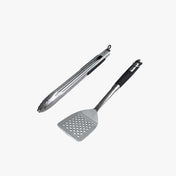Barbecuing is a year-round activity for many grilling enthusiasts. However, when the weather turns cold, maintaining the flavor and quality of your grilled foods can be a challenge. The chill in the air not only affects your grilling techniques but can also influence the taste and texture of your food. Luckily, with a few tips and adjustments, you can continue to enjoy that irresistible barbecue flavor, even in winter conditions. Here’s a comprehensive guide on how to maintain your barbecue flavor in cold weather, featuring some great tips for both novice and seasoned grillers.
1. Choose the Right Grill for Cold Weather
Cold weather can pose unique challenges when grilling outdoors. Not all grills perform equally well in low temperatures, so selecting the right grill is critical for maintaining both flavor and temperature control.
Gas Grills:
Gas grills, like the Monument Grills range, are great for cold-weather grilling because they can heat up quickly and maintain a consistent temperature. Make sure your propane tank is full and consider investing in a high-quality regulator to ensure the gas flow remains steady even when temperatures dip. Additionally, some Monument Grills models feature Smart Control systems that allow for more precise temperature management, even in harsh weather.
Charcoal Grills:
Charcoal grills provide that classic smoky flavor that many barbecue enthusiasts love. However, they require a bit more attention in the cold. To maintain the desired temperature, you’ll need to adjust your airflow carefully. Adding a charcoal chimney starter will help light the coals quickly, allowing you to get your grill going even in colder temperatures.
Electric Grills:
Electric grills can be a good choice if you're grilling in an enclosed space or facing extreme cold. These grills typically have consistent heat levels but may lack the smoky flavor that some people crave.
2. Use the Right Fuel for Maximum Flavor
When grilling in colder weather, the type of fuel you use can have a significant impact on the flavor of your food. This is because different fuels produce different amounts of smoke, which affects the overall flavor profile of your grilled items.
Charcoal:
Charcoal remains a fan favorite because it imparts a distinctive smoky flavor to your food. In colder weather, it’s especially important to use high-quality lump charcoal or premium briquettes that burn hotter and longer. To ensure consistent flavor, add a few wood chips to the coals. Hickory, applewood, or mesquite are excellent choices for a flavorful winter cookout.
Wood Pellets:
Wood pellet grills are becoming increasingly popular due to their ability to provide consistent heat and a variety of flavors. In cold weather, these grills can maintain stable cooking temperatures while infusing your food with delicious wood-smoked flavors. Look for wood pellets that are designed for use in cold weather and provide a clean, smoky flavor without excessive ash.
Gas:
Gas grilling is often more convenient and consistent in cold weather. If you're looking to maintain flavor while using a gas grill, consider adding smoker boxes or wood chips to your grilling setup to introduce the rich, smoky flavor that’s characteristic of a traditional barbecue.
3. Preheat Your Grill Properly
In cold weather, it’s crucial to give your grill enough time to preheat before you start cooking. This is especially true for gas grills like Monument Grills, where the cold air can affect the heat retention and overall cooking performance. Aim to preheat your grill for at least 15 to 20 minutes before placing your food on the grates. This ensures that the temperature stabilizes and that your food cooks evenly.
Tip:
To improve heat retention and avoid heat loss, consider using a grill cover when not in use. This will protect your grill from the elements and help it retain heat better during the preheating process.
4. Maintain Consistent Heat Levels
One of the biggest challenges of grilling in cold weather is maintaining consistent heat. When it’s chilly outside, the cold air can quickly lower the temperature of your grill, causing fluctuations during cooking. To combat this, it’s essential to adjust the heat frequently and use your grill’s thermometer to monitor the temperature.
Gas Grills:
On gas grills, it’s essential to turn on all burners and use the side burners or an indirect cooking method to distribute heat more evenly. For larger Monument Grills models, you can utilize Smart Control to precisely manage temperature levels for more consistent cooking. This feature is especially useful for grilling in the winter months when temperature fluctuations can occur.
Charcoal Grills:
If you're grilling with charcoal, try stacking the coals on one side to create a two-zone cooking area. This allows you to sear the meat over direct heat and then move it to the cooler side to cook slowly, retaining more moisture and flavor.
5. Seal the Grill to Retain Heat
When grilling in cold weather, you’ll want to retain as much heat as possible to ensure efficient cooking and preserve your barbecue flavor. To prevent heat loss, ensure that your grill has a tight-fitting lid. If you notice that the lid is not sealing properly, it’s time to replace the gasket or seal.
For gas grills, ensure that the propane tank is full and that the connection is secure, as the colder temperatures can cause pressure fluctuations that impact performance. Additionally, for Monument Grills, the inclusion of heavy-duty stainless steel construction helps retain heat, making it a top choice for winter grilling.
6. Cook with the Lid Closed
Another important tip for maintaining flavor in cold weather is to cook with the lid closed as much as possible. When you open the lid, heat escapes, causing temperature fluctuations and longer cook times. In the cold, this can also lead to a loss of moisture in the meat, which negatively affects the texture and flavor.
Pro Tip:
If you need to check your food, do so quickly and avoid prolonged exposure to the cold air.
7. Avoid Overcooking in Cold Weather
In colder weather, food can take longer to cook. It’s easy to assume that meat isn't cooking fast enough, but it’s essential not to overcook it just to get it done quickly. Overcooked meat loses moisture and flavor. Instead, rely on a meat thermometer to ensure that your food reaches the right internal temperature without sacrificing quality.
8. Add Flavor with Marinades and Rubs
A great way to boost the flavor of your barbecue is by using marinades and rubs. These infuse your food with delicious flavors and can help lock in moisture, which is especially important in cold weather when grilling can sometimes dry out the food.
- Dry Rubs: Apply a flavorful dry rub before grilling to give your meat a savory crust. Ingredients like brown sugar, paprika, garlic powder, and chili powder can create an irresistible outer layer.
- Marinades: Soak meats in a marinade before cooking. For beef, chicken, or pork, a mixture of olive oil, vinegar, herbs, and spices can make a big difference in the flavor.
9. Plan for Extra Cooking Time
Cold temperatures will extend the cooking time for your barbecue meals. Be prepared for this by planning ahead. If you’re hosting a winter barbecue or cooking large cuts of meat, make sure to allocate extra time to ensure everything cooks properly.
If you're unsure about timing, always go by internal temperature rather than time. Monument Grills come with precise temperature gauges that make it easy to monitor your food's internal temperature, ensuring a perfect cook every time.
10. Consider Using a Grill Shelter or Wind Blocker
The wind can significantly affect your grilling experience in cold weather, causing the temperature to drop and making it harder to maintain heat. To solve this, consider investing in a grill shelter or wind blocker to protect your grill from the wind. These accessories help retain heat and create a more stable cooking environment, making winter grilling more efficient and enjoyable.
11. Keep Your Grill Clean
Cold weather can cause grease and food particles to accumulate on your grill, making it more challenging to maintain flavor. Regularly clean your grill after each use to ensure that old food and grease don’t affect the taste of your meals. The grates, burners, and interior of your grill should be thoroughly cleaned to avoid flavor contamination.
For Monument Grills, maintaining cleanliness is easy due to the removable grease trays and easy-to-clean grates, which ensure a hassle-free grilling experience.
12. Use the Right Cookware
Finally, use the right accessories and cookware to maintain flavor. Grill baskets, pans, and skewers are great tools for cooking smaller or delicate items like vegetables, shrimp, or fish. A grill stone can also help retain heat while adding a unique flavor to your food.
Conclusion:
Grilling in cold weather doesn’t mean you have to compromise on flavor. By choosing the right grill, maintaining a consistent heat source, and using the proper techniques, you can enjoy the same great barbecue flavor you love, no matter the season. So, whether you’re using a Monument Grills model or any other grill, remember that preparation is key. Embrace the winter season, fire up your grill, and continue creating delicious meals all year long.
For more grilling tips and equipment, check out the Hot Sale Grills and start grilling with confidence!
Internal Links:
























Share Your Thoughts